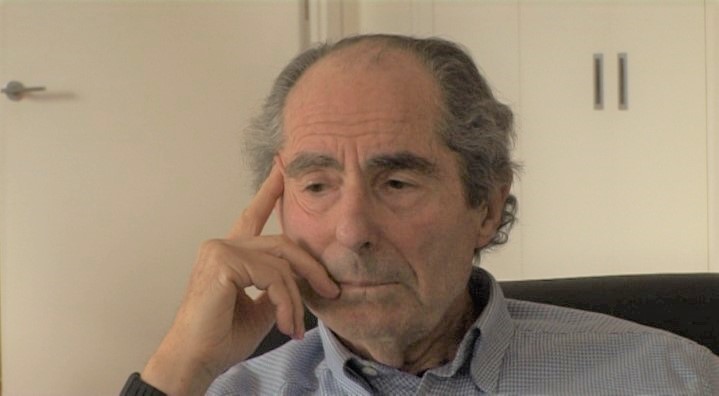NEXT STORY

Using words to make it real
RELATED STORIES

NEXT STORY

Using words to make it real
RELATED STORIES


|
Views | Duration | |
|---|---|---|---|
| 91. A book about the Vietnam war | 425 | 01:49 | |
| 92. American Pastoral: a family destroyed | 446 | 02:44 | |
| 93. Unlocking the pages | 548 | 01:43 | |
| 94. Writing American Pastoral | 523 | 00:33 | |
| 95. American Pastoral: the kiss – or how I got lucky | 663 | 03:28 | |
| 96. Page by page, how does it work? | 800 | 03:28 | |
| 97. Using words to make it real | 566 | 02:35 | |
| 98. The ordeal of writing | 834 | 01:46 | |
| 99. The writer's working day | 1059 | 01:57 | |
| 100. Writing and re-writing a novel | 1135 | 02:23 |


Well you ask, how do I come up with making the girl into a Jain when the father discovers her. Do I know about that beforehand? Am I writing my way towards that? No, I have no knowledge of it whatsoever. The... the book, page by page, advances your understanding of the book. I remember now about Mary's being... being a Jain. Some years earlier, let's say 10, I had become interested in Jainism… or is it pronounced jahy-niz-uhm? I'm not sure. I did some studying and I made some notes. No... no reason whatsoever, there may have been an immediate reason, but I forget what that was. And when I was writing American Pastoral, somehow I came… luckily, I came up on these old notes about Jainism and I thought, great, that's what I'm going to do. Accident plays a tremendous amount of importance is all this. Now, especially in... in the last half of a book… it's always so – if the book is going well – that things begin to come at you... from the air, from the newspaper, from what you're reading, which has no relationship to your book… that belong in the book, and you stick them in. They just adhere to the book because you want a sense of randomness in the book, too. You don't want it all pointed in one direction. And... so it should have a... a random-seeming surface – at least, I like that – while it's moving forward. And, I remember coming upon the Jain stuff in my notes and then writing the scenes where her father goes to see her in this little hovel she's living in as a Jain, and, of course, I was thrilled by that discovery.
There is the excitement, you know. If you can make it through the ordeal to the excitement, you're home free. But there is the excitement when you see it... that it's alive, it has vitality, it has variety, it has knowledge. Whose knowledge God only knows; it isn't mine. But somehow there's... there's knowledge there. And this all comes out of the invention. It all comes out of the invention. So I... I begin a book with virtually nothing. There may be others who start with more. I... I'm not sure there are many. I have nothing. I have some sentences. I have some words. I have a predicament that someone is in. And then I advance my understanding of the book by writing it.
The fame of the American writer Philip Roth (1933-2018) rested on the frank explorations of Jewish-American life he portrayed in his novels. There is a strong autobiographical element in much of what he wrote, alongside social commentary and political satire. Despite often polarising critics with his frequently explicit accounts of his male protagonists' sexual doings, Roth received a great many prestigious literary awards which include a Pulitzer Prize for fiction in 1997, and the 4th Man Booker International Prize in 2011.
Title: Page by page, how does it work?
Listeners: Christopher Sykes
Christopher Sykes is an independent documentary producer who has made a number of films about science and scientists for BBC TV, Channel Four, and PBS.
Tags: Mary Levov, American Pastoral
Duration: 3 minutes, 28 seconds
Date story recorded: March 2011
Date story went live: 18 March 2013